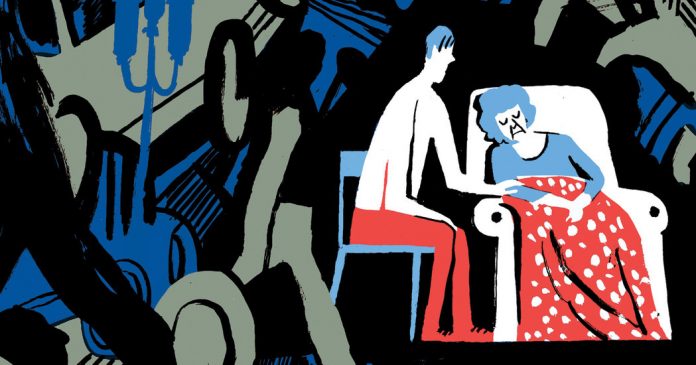A TERRIBLE COUNTRY
By Keith Gessen
338 pp. Viking. $26
When I was an undergraduate, I took a poetry class with a well-known poet. We met during his office hours to discuss a poem I’d turned in about my grandmother. He peered down his glasses at me, and said: “This reads as if no one’s written a poem about grandmothers before.” He must have seen that I was ready to take this as a compliment, because he quickly added, as genially as he could, “I don’t mean in the good way.”
I recalled this experience at the outset of Keith Gessen’s second novel, “A Terrible Country,” about a young, literary, professionally thwarted and recently jilted Russian-American man who, in 2008, returns to his birth city of Moscow to find himself. A grandmother serves as the proving ground here, too — the young man, Andrei Kaplan, comes to help take care of his. Quite a few have written a poem on this subject before, from Gary Shteyngart, more than 15 years ago, in “The Russian Debutante’s Handbook,” to the flurry of American writers who published books in the aughts about figuring themselves out in Eastern Europe after the fall of communism, to more recent novels by some of the many ex-Soviet writers publishing fiction today.
But Gessen has Andrei walk through Moscow as if he’s treading terra incognita. America and Russia, he tells us, are “not the same.” Americans earn more, and live in bigger apartments. People look and act differently in Russia; it has a different ethnic makeup, too. “Moscow,” for its part, “was enormous”; we get a Lonely Planet-style entry on its subway system. Andrei even issues the self-flogging cry of every literary Russian-Jewish American male who has touched finger to keyboard, your reviewer included: “My parents had taken a great risk and undergone a great trial to bring me to a country where I could do, basically, anything I wanted. And what had I done? My friends from college and high school were now doctors, lawyers, bankers … whereas I had chosen to read books.”
When Andrei does tell us something we didn’t know, sometimes it’s hard to feel that we need to. “My grandmother’s bathroom — separate from the toilet, which had its own, much smaller room, just off the front hall — was large for a Soviet bathroom,” he reports. “It’s possible that it had once been part of the kitchen. Along the wall was a ledge that was used for toiletries. I put mine there now.” Elsewhere, Andrei wants us to know that “the time difference was mostly to blame” for his jet lag, “but so too, I thought, was my sudden lack of exercise.” He tries to find an internet connection, searches for an affordable cafe, meets the neighbors and receives his first text. (“I’d never texted in Russian before,” he apprises us later, “and I enjoyed it.”) Andrei offers plenty of self-deprecation, but we aren’t given much reason to assume this is parody.





































